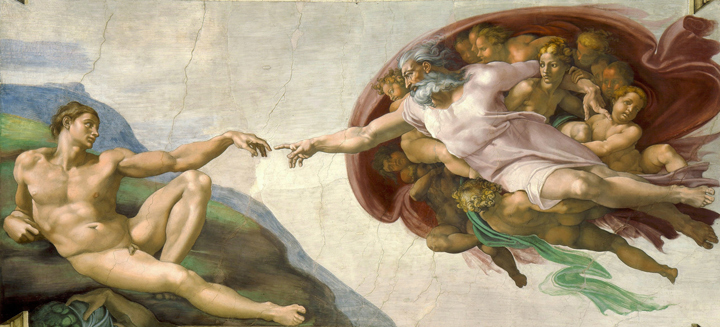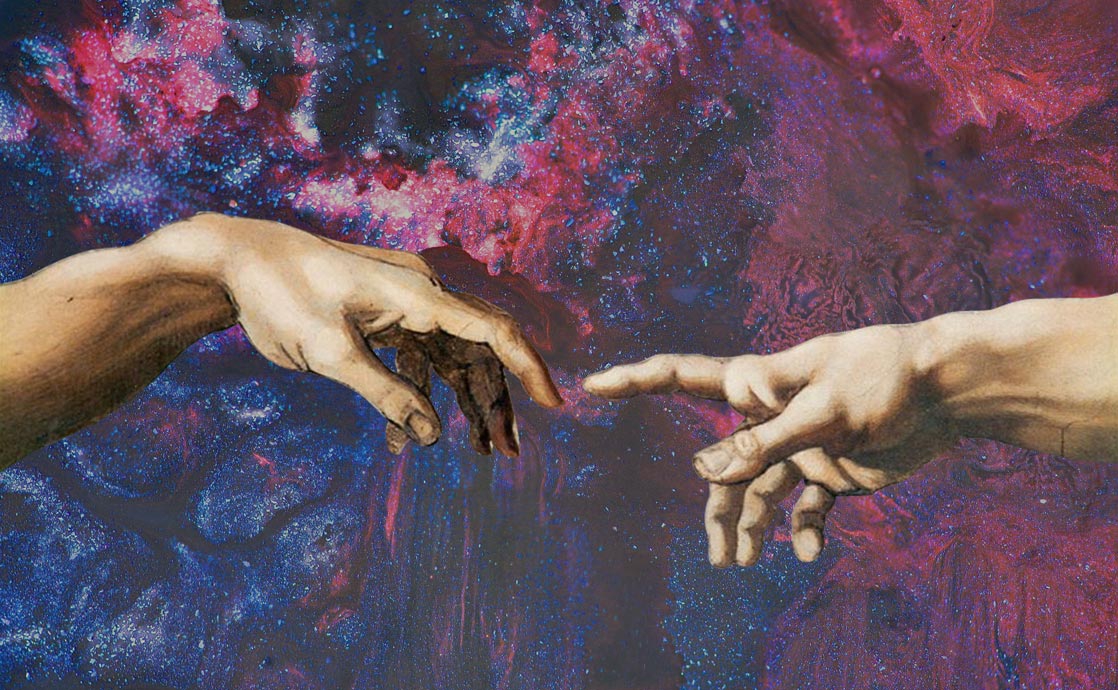The views expressed in our content reflect individual perspectives and do not represent the authoritative views of the Baha'i Faith.
“Do you believe in God?” a man named Nikolai asked his friend, Ali-Akbar Furutan.
“Nikolai, I don’t believe in the God that you don’t believe in,” Mr. Furutan responded. He was a Baha’i living in the Soviet Union in the 1920s. If he answered yes, he risked a visit to the gulag, and if he answered no, he would be lying. His quick wit made sure he was alive to tell me that story in 2001.
Though not under threat, I take a similar approach to Mr. Furutan when people ask me if I believe in God. I tend not to use the word “God” in everyday speech because it might mean something different to each person I speak to. I can agree with an atheist that the commonly depicted picture of a human-like God is a false and harmful idea. However, I would profess myself as a believer in God when speaking to a Christian. If that sounds confusing, keep reading.

I don’t believe that God is a superman miracle worker who manages heaven, but I also recognize that whatever I might be able to articulate about God is probably also wrong. I’ve gone back and forth, wondering whether figuring out God is the most critical question or not relevant to daily life. If God is so unknowable and un-articulable, why even worry about it?
RELATED: I Don’t Believe in That God, Either
Baha’u’llah, the prophet and founder of the Baha’i Faith, presents a logical flow of ideas that is both familiar and revolutionary in describing God in his Book of Certitude. He explains that much of God’s reality is unknowable and simply beyond anyone’s capability to fathom. “To every discerning and illumined heart it is evident that God, the unknowable Essence, the divine Being, is immensely exalted beyond every human attribute, such as corporeal existence, ascent and descent, egress and regress. Far be it from His glory that human tongue should adequately recount His praise, or that human heart comprehend His fathomless mystery.”
The unknowability of the essence of God is foundational. But Baha’u’llah also explains that “The Source of infinite grace… hath caused those luminous Gems of Holiness to appear out of the realm of the spirit, in the noble form of the human temple, and be made manifest unto all men, that they may impart unto the world the mysteries of the unchangeable Being, and tell of the subtleties of His imperishable Essence.”
Those “Gems of Holiness” describe a specific recurring role found throughout history, a position that Baha’u’llah says will continue to appear about every thousand years into the indefinite future. Baha’is refer to this as a “Manifestation of God”: a person who is born with innate spiritual perception and goes through a divine enlightenment that gives them perfect knowledge and insight. Like a skilled physician, they perceive humanity’s illnesses and prescribe a remedy in the form of teachings and laws that bring the highest level of spiritual education possible to those who respond to their message.
These Manifestations are always initially rejected by those in power. They are persecuted, and their religion ultimately overcomes their enemies as a new golden age dawns. However, over time, every religion becomes corrupted as spiritual life fades from the community of adherents, and the unknowable Essence — what we call “God” — again raises up another Manifestation to take humanity to the new level of education it desperately needs. I believe that Baha’u’llah was a Manifestation of God. I believe that this will be apparent to everyone who investigates the signs of his revelation with an open and unbiased mind.
RELATED: What Does it Mean to Investigate Your Own Truth?
God has no material form and is not out there somewhere in the universe. These Manifestations of God are not physically God, but they spiritually show the attributes of God. To observe their spiritual attributes is to observe God’s attributes, which is all we can know of God. To a lesser extent, those attributes can be observed in ourselves. Bahaʼuʼllah also taught that God is potentially inside us, closer to us than our own selves: “For in [man] are potentially revealed all the attributes and names of God to a degree that no other created being hath excelled or surpassed. All these names and attributes are applicable to him.”
In the New Testament, Paul says, “God is love.” Love is available to everyone, and these qualities are infinite. We never attain perfect love, kindness, justice, or unity — we’re just always growing closer and closer to them. These virtues are the goal of our individual and collective lives, and they bring us joy that never fades.
There is a Baha’i prayer that reads, “O God, my God, my Beloved, my heart’s Desire.” To me, this prayer isn’t talking to something outside of myself or outside of my ability to understand. It is talking about the spiritual qualities that I see in myself and others. These ideas are repeated in many of the writings of Baha’u’llah. He mentions that the capacity to know the attributes of God should be regarded as “the generating impulse and the primary purpose underlying the whole of creation.” And, upon human reality, God has “focused the radiance of all of His names and attributes, and made it a mirror of His own Self.”
It sounds cliché to say that God is inside you, but this is what all the holy books have been telling us, and Baha’u’llah clearly affirms it. We spend our lives searching for fulfillment — in material things, validation from others, physical pleasures, or worldly power — but true joy can be attained while deprived of all those things. Every person has a latent power that leads to contentment, love, curiosity, selflessness, courage, and more.
To be without those attributes is to be far from God, and to be strong in those attributes is to be near to God.
















Comments
Sign in or create an account
Continue with Googleor